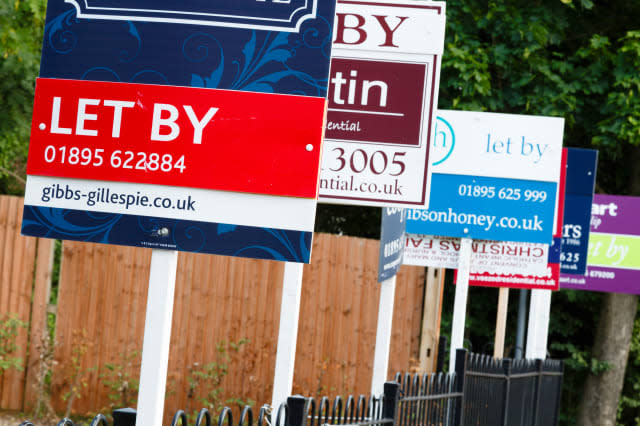Buy-to-let: The pros and cons

The budget was widely seen in the property business as a kick in the teeth for buy-to-let landlords.While chancellor George Osborne announced that capital gains tax was to be cut, he explicitly excluded buy-to-let purchasers from the new rates.
And that's just the latest in a series of moves that have made buy-to-let far less lucrative than it once was.
"In recent months we've seen 'Right to Rent' introduced, the EU Mortgage Credit Directive come into force, the stamp duty surcharge come into operation, plus new rules for tax relief on mortgage interest to be introduced from next April," says Kevin Day, head of lettings at estate agent Connells.
"We are urging landlords and investors not to be put off by these changes as, although it is true that there is now a greater level of input required, buy-to-let can still be a good investment choice."
So what are the pros and cons of buy-to-let?
Pros
Return on investment - Buy-to-let properties are often advertised in terms of rental yield - and the figures are generally far better than you'd achieve by investing elsewhere. While it's important to remember all the hidden costs - see Cons, below - it's relatively easy to calculate your rate of return.
Capital growth - There's not much you can buy that goes up in value as dramatically as property has done in recent years. The latest figures show prices up by 8% on last year, with many areas in double figures.
Mortgage rates - Today's historically low mortgage rates look set to continue for some time yet.
Security - as they say, they're not making any more land, and bricks and mortar is one of the most tangible investments that there is. While we've had property crashes in the past - and may be due for another - this generally isn't an issue if you can afford to ride it out.
Cons
Illiquidity - You'll be tying up your money for a long time. Even in the most heated market, properties take weeks or months to sell. And the more quickly you need to sell, the lower the price you'll have to accept.
Voids - You may not be able to find tenants, or you may need to keep the property vacant for a bit while you carry out repairs. Either way, you'll still need to be paying the mortgage.
Charges and tax - You'll need to cover the costs of buying, including solicitor's fees, stamp duty and survey fees - and anybody buying a second property will be hit with an extra three percent stamp duty bill. You'll need to pay capital gains tax when you sell - at a higher rate than with other investments.
Ongoing work - You can't, unfortunately, just sit back and let the money roll in. The property will need maintenance and repairs - and you'll either need to handle this yourself or pay someone else to do so.
A safe bet? - Few investments have out-performed property over the last fifty years - unless you're one of those people who bought just before the crash. By investing in buy-to-let, you're betting on prices continuing to rise - for rental, as well as for capital growth.





